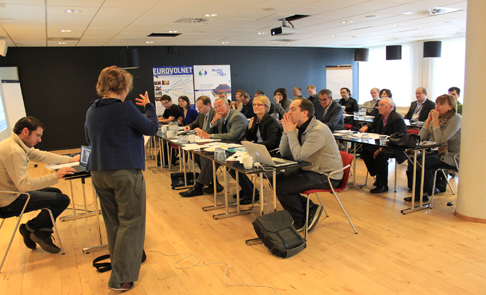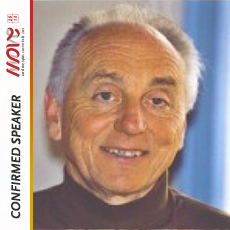Jean Camy: ISCA and its members can keep voluntary sector's original vision alive
30/04/2015

ISCA 20th Anniversary feature article series
With the EuroVolNet project, ISCA took a big step into the field of volunteering in grassroots sport. It was such a big step that it was a featured track at the SPORTVISION2012 conference, which gathered the EU’s political decision makers and European institutions during the Danish Presidency of the Council of the European Union. Jean Camy, Emeritus Professor at the University of Lyon, France, shared his expertise in the culture of volunteering through the EuroVolNet project and has continued to be a part of ISCA’s network of academic advisors ever since. He recalls how he first crossed paths with ISCA and glances at the future of volunteering in non-profit organisations.
As a sociologist, my interests in education, sport, popular culture, social links, and voluntary movements and their development of our European societies, spontaneously led me to cross paths with ISCA…
My first encounter with ISCA was in February 2011 in Cassino (Italy). I had been asked to contribute to ISCA’s SANTE project with a presentation on “Identifying the requirements for the qualification of effective professionals and volunteers in the coaching; health and fitness; physical education and sport management strands of the industry”. It was there that I discovered a very friendly world of people strongly dedicated to the development of sport and physical activity as part of human culture.
When I was invited to contribute to another project, EuroVolNet, in September 2012, I happily jumped into that new adventure. In that project I saw the power of a group of people who were willing to go further and improve the management of their voluntary associations in pursuit of both effectiveness and better democracy. My following experiences with ISCA, either in projects (such as MOVE Quality and MOVE Transfer) or at the MOVE Congresses, have been as stimulating as the first ones.
I must also say that I have always been impressed by the staff of the organisation. This is not only because of their friendliness and desire to make things easier, but because of their presence at the heart of the preparation of seminars and events, their clever and rigorous management of these meetings, and their capacity to keep participants mobilised all the way until their reach their expected achievements. To say it directly, what a tremendous balance!
On the other side of its brilliant achievements, what are the challenges we can imagine for ISCA and its ever more numerous members in the coming years?
Volunteering or, more broadly, involvement given freely to a cause, activity or another human being, remains the basis of life in our societies, even if dominant ideologies try to persuade us that this is not the case. Can we continue to promote a community culture based on the free engagement of its individual members? That is the first challenge most non-profit, and often volunteer associations, are facing.
The second is that our citizens’ time for personal engagement is limited. That is why we have to learn from each other’s knowledge and experience so we can develop the efficiency of our organisations and keep them involved.
But, and that is the third challenge, the humanistic vision and mission promoted by most voluntary or non-profit associations is now being threatened by new rules and procedures that have been developed in the context of business. It is therefore necessary to reinvent a “management” specific to voluntary associations so they avoid becoming too business-like.
I think ISCA presents a great opportunity for sport for all associations to meet these challenges and keep moving forward. By working together and maintaining their positive approach and desire to improve, they will ensure that the original visions of the voluntary sector are kept alive…

Posted on 30/04/2015 by Jean Camy, Emeritus Professor at the University of Lyon, France

